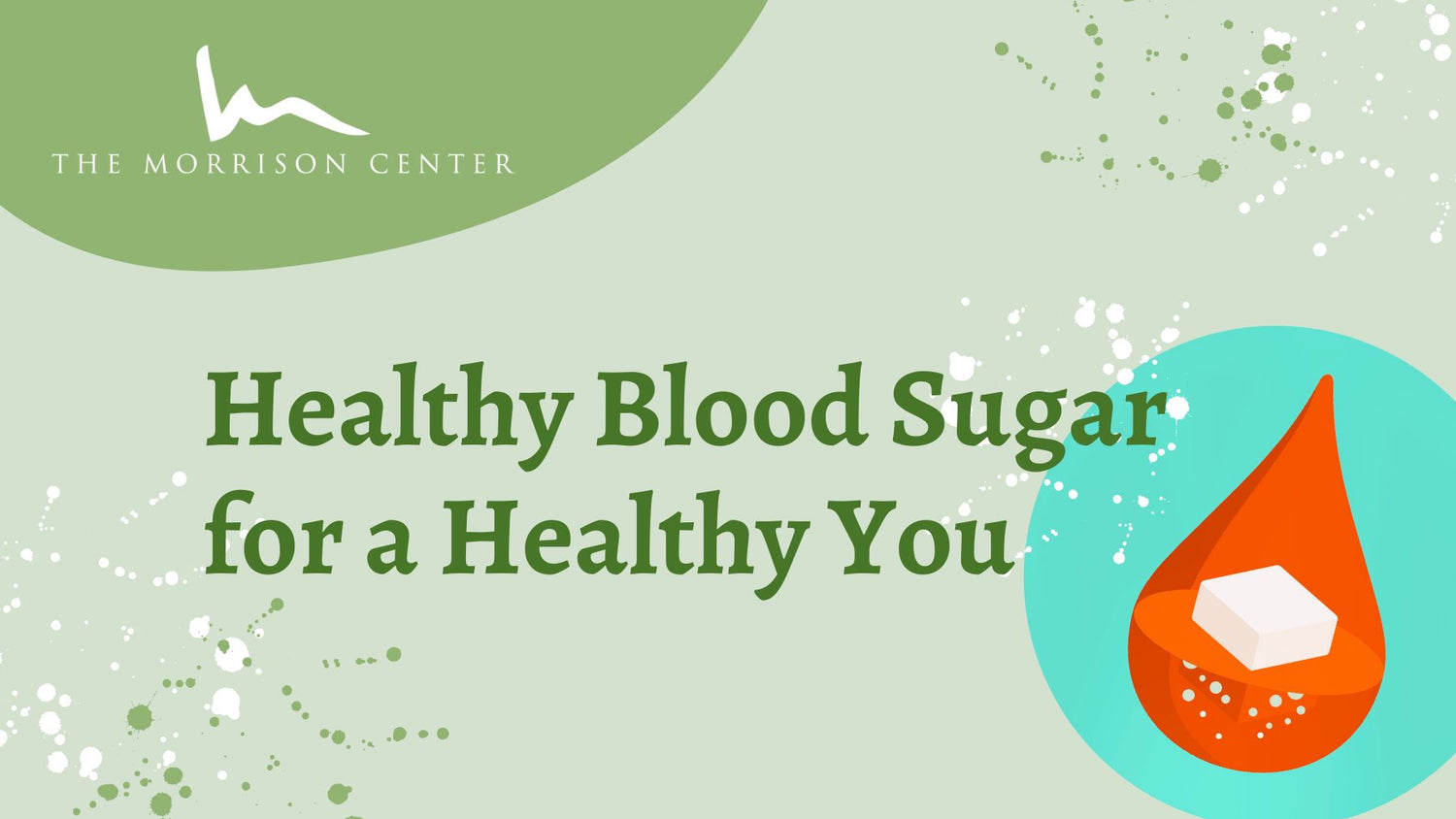If you have a sweet tooth, you’re not alone! We’ve all been there, when the smell, sight or even thought of a sweet treat creates a seemingly irresistible urge. Science tells us that sugar is a real addiction.1 Sugar was once a scarce energy source, and craving it may have been advantageous for our ancestors. But today, with sugar everywhere, we’re stuck with an outdated pattern.
It's even in our hormones. We have four that raise blood sugar, and only one to lower it – insulin. When the body has too much sugar and simple carbs, insulin gets overworked and our cells eventually stop responding, a process called insulin resistance. Toxins can contribute too: especially persistent organic pollutants (POPs) – plasticizers and pesticides found in farmed salmon and some non-organic foods.2
It's complex! That’s why we’re excited to share Dr. Morrison’s tips for staying on top of your blood sugar. Some signs of insulin resistance are increased appetite after high-carb meals, since your cells can’t take in the energy, and skin tags, because excess insulin acts as a growth factor. Insulin resistance contributes to metabolic dysfunction and can lead to type II diabetes. (Type I is an autoimmune disease that depletes insulin, and usually shows up in youth. However, 10% of adults diagnosed with type II may actually have autoimmune diabetes.3 )
High blood sugar itself can also cause trouble: oxidative stress, inflammation, acidity, and blood vessel damage, and harm to organs like the eyes, kidneys, and bones. Some signs of high blood sugar include:
- Intense sugar cravings or carb addiction
- Episodic blurred vision or fatigue
- Excessive thirst and urination, such as getting up frequently to go at night
However, high blood sugar and insulin resistance often have no symptoms, so it’s important to get your labs checked. Dr. Morrison’s go-to markers are:
- Hemoglobin A1c is the most reliable, indicating your average blood sugar over the past 3 months. Fasting glucose is also helpful, but it can vary by day.
- Fasting triglycerides and VLDL can indicate if the liver is overwhelmed with carbs.
- Fasting insulin can be the earliest sign of insulin resistance. It can rise before A1c, when insulin is working hard but still keeping your levels normal.
- Lactate dehydrogenase tells whether your cells rely too much on carbs for energy.
- High-sensitivity C-reactive protein (hsCRP) tells you if high blood sugar is driving inflammation.
Here’s how to keep your blood sugar healthy:
- Follow a low-carb meal plan. Simple carbs turn into sugar in the body, which is like putting gasoline on your metabolism’s steady flame! At TMC, the low-carb meal plan has been our tried-and-true for combatting insulin resistance for years. Call us to schedule a consultation with our nutritionists, Stephanie and Robin, for help designing a personalized plan.
- For additional support, try Gluco Benefit, Dr. Morrison’s targeted multivitamin for blood sugar control, or BioGymnema, an Ayurvedic herb blend that helps lower blood sugar and reduce cravings. Daily Benefit’s Glutamine Plus also helps with sugar cravings, especially when taken between meals.
- Exercise is essential for stimulating healthy metabolism and blood sugar. Both aerobic and resistance training are great – anything that gets your muscles working gets your sugar moving!
- Sometimes, the body and mind crave sugar to satisfy a deeper, spiritual need. Is there a part of your life where might you be yearning for more fulfillment? Seek out sweetness in moments of connection with the ones you love. To energize the body and mind with more sustainable fuel, pursue your passions and creativity.
Stay tuned for part two of our March blood sugar insights!
References:
-
DiNicolantonio JJ, O’Keefe JH, Wilson WL. Sugar addiction: is it real? A narrative review. Br J Sports Med. 2018;52(14):910-913.
-
Kim YA, Park JB, Woo MS, Lee SY, Kim HY, Yoo YH. Persistent Organic Pollutant-Mediated Insulin Resistance. Int J Environ Res Public Health. 2019;16(3):448. Retrieved from: https://www.ncbi.nlm.nih.gov/pmc/articles/PMC6388367/
-
Naik RG, Brooks-Worrell BM, Palmer JP. Latent autoimmune diabetes in adults. J Clin Endocrinol Metab. 2009;94(12):4635-4644.
About the Author:
Jonah Udall is a nutritionist, herbalist, and functional medicine practitioner in-training, earning his Masters of Science in Human Nutrition and Functional Medicine at University of Western States. Chronic health challenges taught him the importance of seeking root causes, celebrating the individual, and finding collaborative paths to vibrant health with nature’s medicines. Jonah is also a professional musician and movement artist and a certified Deep Listening instructor.



Leave a comment